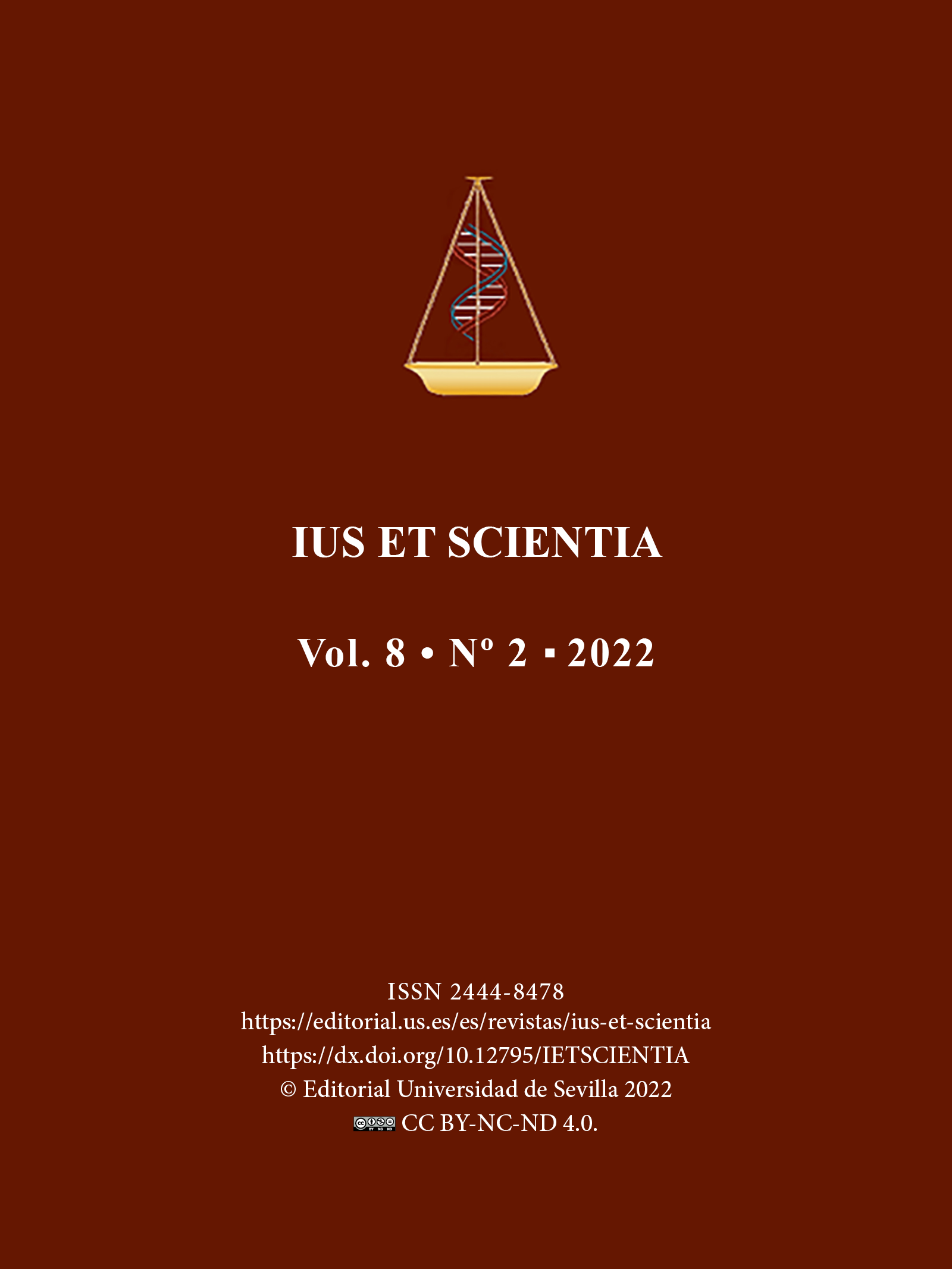Decalogue proposal to develop bioethics in health organizations
DOI:
https://doi.org/10.12795/IESTSCIENTIA.2022.i02.12Keywords:
Bioethics, Heatlh Organisation, ValuesAbstract
The principles of Beneficence, Autonomy, Non-maleficence and Justice are to this day, the basis that has allowed the development of ours health systems, and restrain the paternalistic exercise in the doctor-patient relationship. Nonetheless, a complete development of bioethics has not been yet achieved in a health organization or health policies
We propose 3 levels: the fundamental: Respect, Transparency, Veracity and Coherence; the intermediate: Dignity, Legality, Justice, Trust and the superior: Integrity and Ecology.
Our capacity to carry out this compendium of values on a personal level and transfer it to our institutions, organizational systems and viceversa, will allow us to obtain better qualitative results in patient care and with the rest our team members, and at a quantitative level, optimizing material and economic resources, thus limiting potential conflicts of interest.
Downloads
References
Joana Mora, Patricia Arratibel y Rafael Bengoa (2019) Cómo avanzar con el paciente. Modelo Afectivo-Efectivo. The Institute for Health and Strategy S.L. (Si-Health).
Constantino González Quintana. (2015). Ética de las Organizaciones Sanitarias. Revista CONAMED, vol. 20, núm 2, págs. 74-77.
Hardy-Pérez, A. & Rovelo-Lima, J. (2015). Moral, ética y bioética. Un punto de vista práctico. Medicina e Investigación, 3(1), 79-84. https://doi.org/10.1016/j.mei.2015.02.007
Organización Mundial de la Salud. (2014) Documentos Básicos. Constitución. http://apps.who.int/gb/bd/s/ s_index.html.
Published
How to Cite
Issue
Section
License
Copyright (c) 2022 Jesús Martín Treviño Theriot, Josu Urbieta Mancisidor

This work is licensed under a Creative Commons Attribution-NonCommercial-ShareAlike 4.0 International License.
Those authors being published in this journal agree to the following terms:
- Authors retain their copyright and they will guarantee to the journal the right of first publication of their work, which will be simultaneously subject to license recognition by Creative Commons that allows others to share such work provided it is stated the author’s name and his first publishing in IUS ET SCIENTIA.
- Authors may take other non-exclusive distribution license agreements version of the published work (e.g. deposit in an institutional digital file or publish it in a monographic volume) provided it is stated the initial publication in this journal.
- It is allowed and encouraged that Author s disseminate their work via the Internet (e. g. institutional digital files or on their website) prior to and during the submission process, which can lead to interesting exchanges and to increase citation of the published work.
- Abstract 266
- PDF (Español (España)) 86
- HTML (Español (España)) 31





